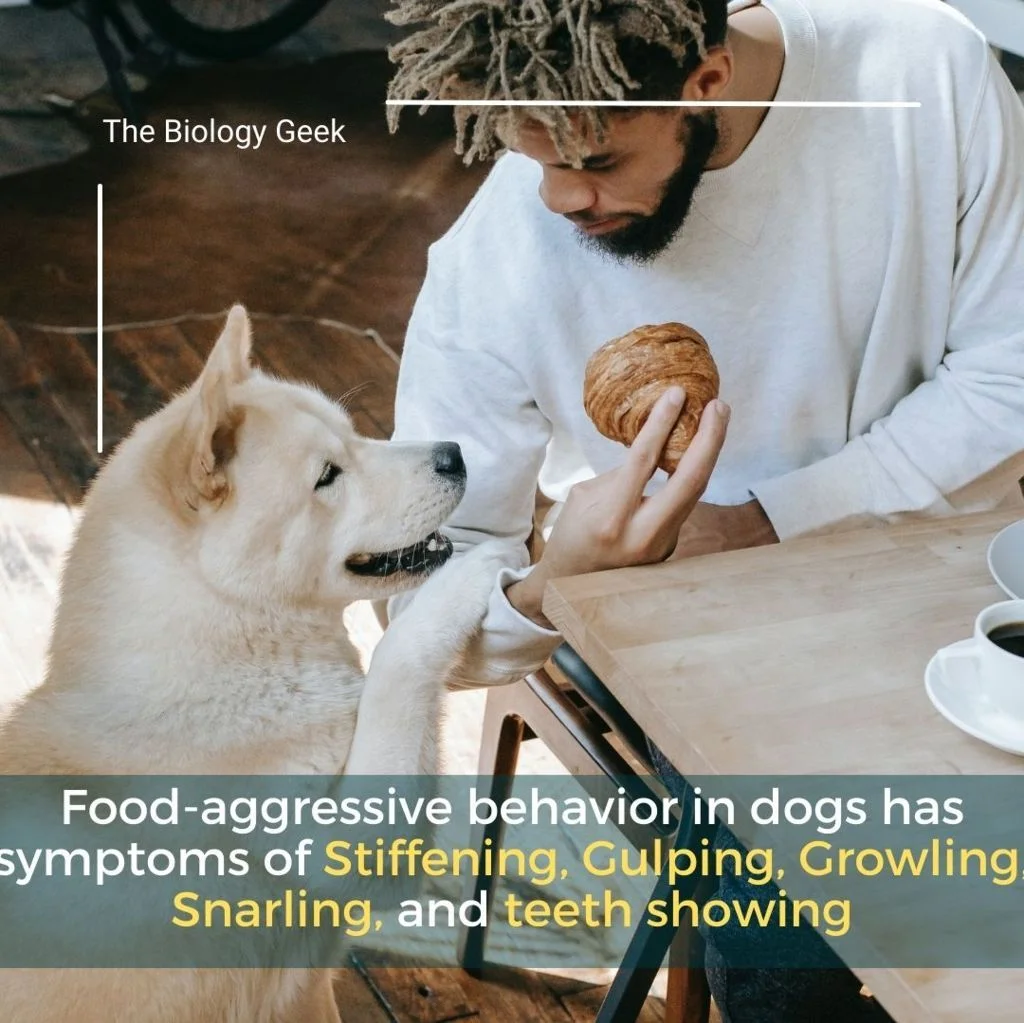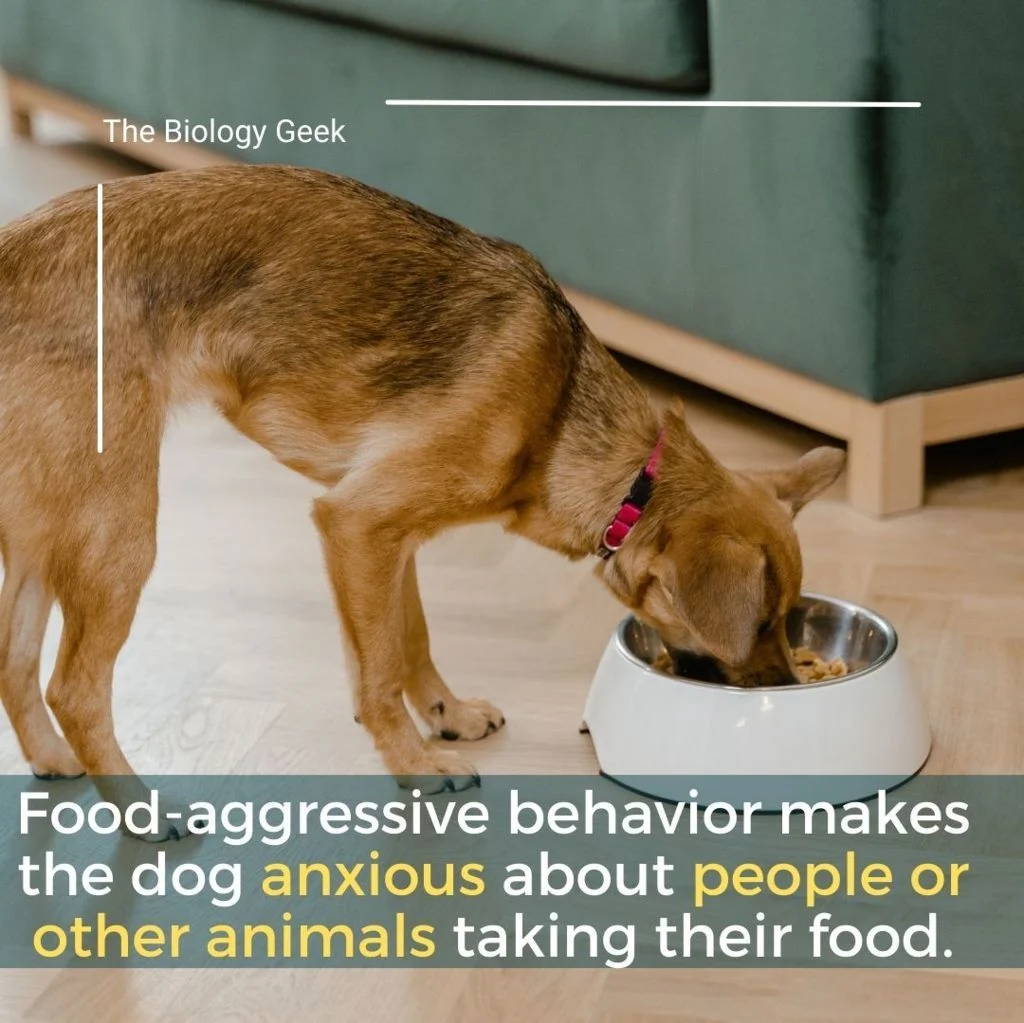Introduction:
Food aggression is a common behavioral issue that some dogs exhibit. It will cause concern and potential problems for pet owners. In this article, we study the signs of Food aggression in dogs toward other dog , its causes, and effective strategies for managing this aggressive behavior. Also, study the importance of seeking professional guidance to cure aggressive behavior.

How does a dog show signs of food aggression?
Food aggression can manifest in various ways, and it's essential to recognize the signs early on. Pet owners can identify these signs and take appropriate action.
- Dogs displaying food aggression may growl, snarl, bark, or show teeth when approached while eating.
- A dog may also stiffen their body, exhibit tense facial expressions, or display a protective stance around their food bowl.
- They are gulping food quickly, guarding their food, and even resorting to biting or snapping if the perceived threat persists.
What causes food aggression in dogs?
Several factors can contribute to food aggression in dogs, including:
- Sudden food aggression in dogs toward other dogs may develop if they feel the need to protect their food from perceived threats.
- Dogs that haven't been properly socialized during their critical development stages may exhibit food aggression due to fear or anxiety in food-related situations.
- Traumatic experiences around food, such as competition for limited resources in a multi-dog household or past instances of food deprivation, can contribute to food aggression.
- Certain breeds or individual dogs may have a higher predisposition to food aggression due to their genetic makeup or inherited traits.
- Anxiety in dogs can also trigger this aggressive behavior. Consult with this article Understanding Anxiety in Dogs for complete guidance.

How to fix food aggression in dogs? Or How do I stop food aggression in my dog?
Curing food aggression in dog requires patience, consistency, and appropriate training techniques. Here are some effective strategies to help manage and correct food aggression:
- Seek guidance from a professional dog trainer or animal behaviorist who specializes in aggression issues. They can provide tailored advice and create a customized behavior modification plan for your dog.
- Prioritize safety by keeping children and other pets away from the feeding area during the training process. Use caution and never attempt to address food aggression without professional guidance if there is a risk of severe aggression.
- Gradually desensitize your dog to food-related triggers by exposing them to controlled situations. Pair positive experiences, such as treats or rewards, with the presence of people or other animals around their food bowl, teaching them that the presence of others is not a threat to their resources.
- Consistency and structure can help alleviate food aggression. Establish a predictable feeding routine and teach your dog to wait patiently before receiving their meals. This reinforces self-control and reduces the need for resource guarding.
- Utilize slow feeding methods, such as puzzle toys or food-dispensing toys, to extend mealtime and promote mental stimulation. This can reduce the dog's inclination to gulp food quickly and guard their resources.
- Reward desired behaviors, such as calmness and tolerance, during feeding time. Use praise, treats, or clicker training to reinforce positive actions and discourage negative behaviors.
- Find valuable tips and guidance from this source "How to Stop Food Aggression in Dogs" It helps manage this behavior of dogs.
Treatment of mange in a dog with medication:
- Mange in dogs cure includes traditional veterinary treatment like dipping of your dog and a powerful chemical pesticide that kills off the mites. These dips can carry a number of harmful side effects including decreased body temperature, vomiting, diarrhea, loss of appetite, restlessness, tremors the central nervous system issues.
- Medicines are also give to dog dogs may also be given other medications with side effects as well. It is in the form of pill or injection or as a topical application.
- There are some other supplements including omega-3 fatty acids that could be really beneficial at helping to relieve skin inflammation and improve the condition of your dog's skin.
Conclusion:
Food aggression in dogs is a serious behavioral issue that requires understanding, patience, and appropriate intervention. By recognizing the signs of food aggression, understanding its underlying causes, and implementing effective strategies for management, pet owners can address this behavior and create a safe and harmonious environment for their companions. Professional guidance in severe cases of food aggression is important.